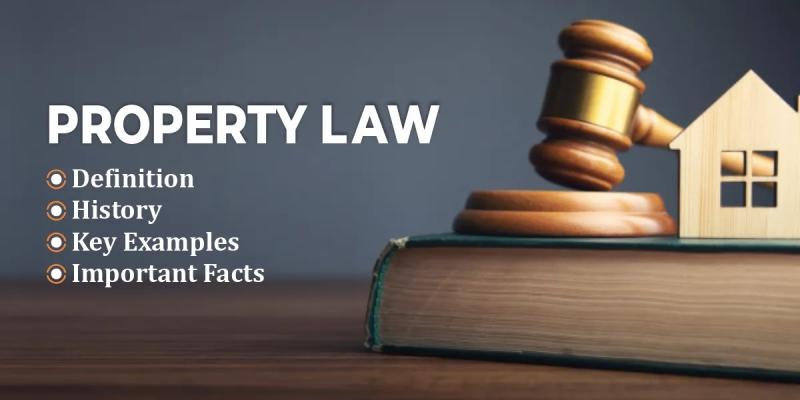Property Law Explained: Definition, History, Key Examples, and Essential Fa

Property law is a critical area of legal practice that governs the ownership
and use of real estate and personal property. Understanding this field is
essential for anyone involved in real estate, from homeowners and investors to
legal professionals. In this blog, we’ll explore the definition, history, key
examples, and important facts of property law.
What is Property Law?
Property law refers to the body of legal principles governing the ownership
and use of property, including land and personal possessions. It encompasses
various rights and responsibilities related to property transactions,
management, and disputes. Key areas within property law include real estate
law, personal property law, and intellectual property law.
History of Property Law
Property law has evolved significantly over centuries. Historically,
property rights were often determined by feudal systems and monarchies. In
ancient Rome, property law laid foundational principles that influenced modern
systems, including concepts of ownership and transfer. The development of
common law in England further refined property rights, shaping contemporary
property law as we know it today.
Key Examples of Property Law
- Real
Estate Transactions:
Legal processes involved in buying, selling, and leasing property are
governed by property law. This includes drafting contracts, transferring
titles, and handling disputes over property boundaries.
- Landlord-Tenant
Law: This area
covers the rights and obligations of landlords and tenants, including
lease agreements, eviction processes, and property maintenance.
- Easements
and Covenants:
Property law addresses easements, which grant certain usage rights over
another’s property, and covenants, which are binding promises related to
property use.
Important Facts About Property Law
- Property
Rights:
Property law ensures that individuals and entities can acquire, use, and
transfer property rights, protecting against unlawful dispossession.
- Land
Registration:
Many jurisdictions require property ownership to be registered with
government authorities, providing a public record of ownership and rights.
- Intellectual
Property:
Property law also covers intangible assets, such as patents, trademarks,
and copyrights, which are crucial for protecting creative and innovative
works.
Conclusion
Property law plays a vital role in managing and safeguarding property
rights, whether dealing with real estate or personal possessions. Understanding
its definition, historical context, and key examples helps in navigating
property transactions and resolving disputes effectively. As property law
continues to evolve, staying informed about its principles and practices is
essential for anyone engaged in property management or legal affairs.

Comments